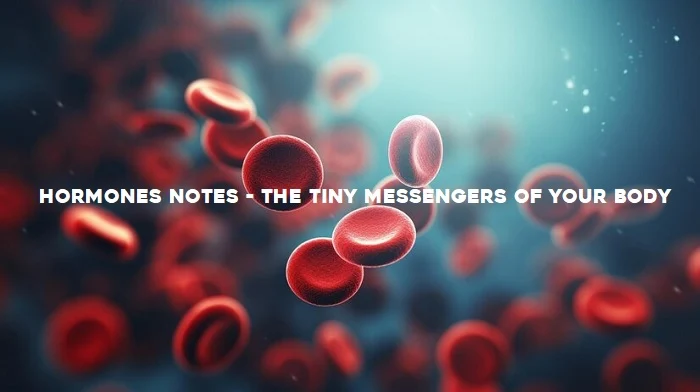Hormones are like the chemical messengers of your body, constantly carrying signals and regulating various functions. They're produced by specialized glands and travel through your bloodstream, influencing the activities of different organs and tissues.
Here's a quick overview of hormones to get you started:
What they do:
Regulate vital processes: Hormones control everything from growth and development to metabolism, reproduction, mood, and sleep.
Coordinate body systems: They work in concert, influencing each other's production and effects to maintain a balanced internal environment (homeostasis).
Respond to stimuli: Hormones can be triggered by internal cues like blood sugar levels or external factors like stress.
Types of hormones:
Endocrine hormones: Released by glands directly into the bloodstream, reaching target cells throughout the body. Examples include insulin, thyroid hormones, and sex hormones.
Paracrine hormones: Act on nearby cells, not entering the bloodstream. Examples include histamine and prostaglandins.
Autocrine hormones: Affect the same cell that produced them. Examples include some growth factors and immune system hormones.
Also Read : Biological Classification Notes
Key glands and their hormones:
Hypothalamus: Master control gland, regulates pituitary hormone secretion.
Pituitary gland: Produces hormones like growth hormone, TSH (thyroid stimulating hormone), and oxytocin.
Thyroid gland: Releases thyroid hormones that regulate metabolism.
Pancreas: Produces insulin and glucagon, crucial for blood sugar control.
Adrenal glands: Release adrenaline and cortisol, involved in stress response.
Gonads (ovaries and testes): Produce sex hormones like estrogen, progesterone, and testosterone.
Hormones are like the chemical orchestra conductors of our bodies, regulating countless functions through their intricate signaling. Here's a quick rundown to get you started:
What are they?
- Chemical messengers produced by glands and released into the bloodstream.
- Travel to target cells throughout the body, delivering instructions.
- Affect a wide range of processes, from metabolism and growth to mood and reproduction.
How do they work?
- Each hormone has a specific "lock" (receptor) on target cells.
- Binding to the receptor triggers a cascade of effects within the cell.
- The response depends on the hormone and the target cell.
Key Players:
- Endocrine glands: Specialized glands that produce and secrete hormones, like the pituitary gland, thyroid gland, and ovaries.
- Types of hormones: Diverse group including insulin, adrenaline, cortisol, estrogen, testosterone, and many more. Each has unique functions.
Why are they important?
1. Regulate vital processes like:
- Growth and development
- Metabolism and energy balance
- Mood and behavior
- Reproduction and sexual function
- Immune system function
- Sleep-wake cycles
2. Hormone imbalances can lead to various health problems.
Ready to delve deeper?
Here are some specific areas you might be interested in:
- Hormones and specific bodily functions: Explore how hormones regulate metabolism, reproduction, or stress response.
- Hormonal changes during life stages: Learn about hormonal fluctuations during puberty, pregnancy, or menopause.
- Common hormonal disorders: Understand conditions like diabetes, thyroid disorders, or PCOS.



.jpeg)
.jpeg)
.jpeg)
.jpeg)
.jpeg)
.jpeg)
.jpeg)
.jpeg)
